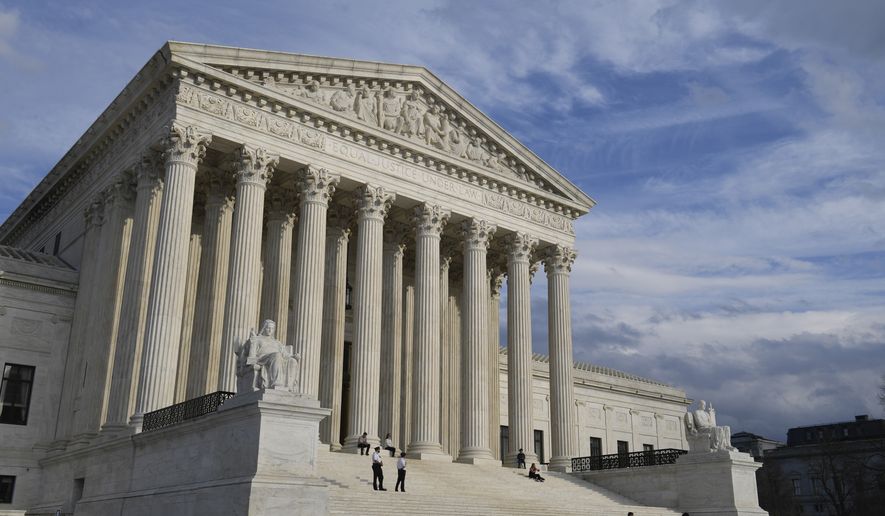More than half a dozen challenges to the 2020 presidential election results are pending before the Supreme Court although President Biden took office two weeks ago.
Court watchers doubt the justices will hear most — if any — of the lingering lawsuits. And yet, the cases will hang in the balance for weeks to come as Mr. Biden settles in and former President Donald Trump weathers a Senate impeachment trial.
The justices are not expected to discuss any of the election challenges until their next conference, which is scheduled for Feb. 19. At least five of the election cases are scheduled for discussion that day, which will mark roughly a month since Inauguration Day.
“The court may have wanted to wait so as not to interfere with the peaceful transition of power or, now, the Senate trial of Trump,” said Rick Hasen, an election law scholar and professor at the University of California, Irvine.
The high court under Chief Justice G. John Roberts Jr. has a reputation for avoiding lawsuits that appear overtly political, so a delay in weighing in until after Inauguration Day was not all that unusual, especially given that the justices denied expediting review of the challenges.
That puts the cases on the normal scheduling timeline and accounts for several weeks for defendants to file a response. It also gives time for other interested parties to file briefs weighing in on the dispute, urging the justices to grant or deny the case.
Amy Howe, a writer for SCOTUSblog, said the justices don’t usually grant review in cases without first calling for a response from the other party.
“The closer we get to Feb. 19 without a call for a response, the more likely it is that the petitions are dead in the water, and the court will just deny review after the Feb. 19 conference,” she said.
Mr. Hasen noted the delay in denying the cases could be due to at least one justice taking time to write a statement about the court’s move declining the challenges, allowing him or her to weigh in on how such disputes could be resolved in future contests.
Others described the delay as a slow walk to the Supreme Court’s trash bin.
Ilya Shapiro, publisher of the Cato Institute’s Supreme Court Review, said the delay doesn’t matter because “all of these are meritless.”
“I imagine the justices want to issue denial orders on them all from one conference, together with the one significant election-related case, Republican Party of Pennsylvania v. Boockvar, which they may yet take up,” he said.
That case challenges the move by the state’s executive branch to extend the deadline for receiving mail-in ballots and allowing non-postmarked ballots to be presumed received by the deadline.
The Pennsylvania General Assembly had set a deadline and requirements for mail-in ballots that the Republican Party in the state argues was violated by the secretary of state’s unilateral extension and changes.
“The outcome wouldn’t have changed the results in Pennsylvania — the ballots in dispute are fewer than the margin — but the issue of how far a state court can go in rewriting state election law before it becomes a federal issue will continue coming up and needs to be settled by the Supreme Court,” Mr. Shapiro said.
Curt Levey, president of the Committee for Justice, said the justices almost have a “civic duty” to weigh in on the legality of a state executive altering election laws passed by state assemblies because the issue surely will come up again, and doing so this year won’t affect an election on the immediate horizon.
“This would be the perfect time,” he said. “No one can get too upset with what they would decide.”
The justices last scheduled the Pennsylvania Republican Party’s petition for a conference on Jan. 22, and the docket does not show whether they have decided to hear or reject the challenge.
The high court has two other cases objecting to Pennsylvania’s mail-in ballots. One was brought by Rep. Mike Kelly, Pennsylvania Republican, and the other was brought by the Trump campaign, which contests 2.6 million mail-in ballots.
The disputes are scheduled to be discussed when the justices meet on Feb. 19.
The Trump campaign also has a case challenging Wisconsin’s results to be discussed during that meeting, as well as challenges brought by Trump allies to the vote counts in Georgia and Arizona.
• Alex Swoyer can be reached at aswoyer@washingtontimes.com.




Please read our comment policy before commenting.